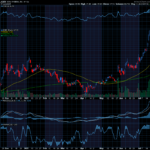The Strike Price is the price at which the underlying asset can be bought or sold, as specified in the option contract.
For example, let’s say you buy a call option on Company XYZ with a strike price of $50 and an expiration date of one month from now. This means that you have the right to buy 100 shares of Company XYZ at $50 per share within the next month. If the price of Company XYZ shares rises above $50 before the option expires, you can exercise the option and buy the shares at the lower strike price, then sell them on the open market for a profit. However, if the price of Company XYZ shares does not rise above $50 or decreases, you may choose not to exercise the option and only lose the premium (cost) paid for the option. The strike price is an important element in options trading, as it determines the potential profit or loss for the holder of the options contract.





Recent Comments